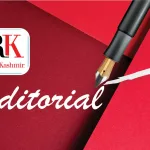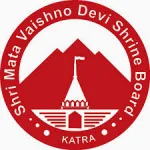One school of thought observes that educational achievements at schools (largely at government schools) are below par due to teachers’ casual approach towards the academic activities there. This is an outlandish observation by some distance: First, government schools do not underperform; two, if at all the performance is poor, that is not due to teachers in entirety. Strong or weak performance at an institution can be ascribed to numerous factors. Unleashing diatribes on a section of teachers or all of them will carry us nowhere.
True, the situation is not beyond betterment and in fact we are well prepared to reverse the state of affairs provided the comfort zone is left for good. The bonus — the government looks committed and resolved to ensure the much sought after improvement. And to steer the school education to the heights of glory.
It is noteworthy that the academic performance of the government schools ignites discussion —both in govt circles and public circles. Even teachers discuss about the weaknesses / faults leading to the under performance of the schools.
To correct the faults and ensure that the schools raise their level of work, several theories, viewpoints, tools and techniques have been introduced into the teaching field through various training programmes. Yet, by certain standards, the satisfactory turnaround seems to be eluding.
Agreed that the trainings are paramount: they update teachers’ technical skills, expose them to newer and modern techniques and tools of teaching and can infuse new life into our teaching-learning atmosphere by making it attractive and enjoyable for students. However, the belief that such trainings and the new teaching mechanism acquired through them, alone will improve our academic standards and enable us to excel, calls for a revisit.
What is noteworthy is that trainings and newer techniques are not in place at the private/ public schools. Still time and again, they outperform government schools. Optimistically, government schools too can strongly up their academic standards and yield better results should they apply these six principles ( P’s) in earnest — pleasure, participation, planning, provision, pressure and performance.
Pleasure
Students at the primary level should feel at home at schools. Their learning must be held in tandem with playing. For example, teaching through activities which are child centered and which let children express themselves freely and fearlessly. Verbal or physical punishments need to be avoided. Trainings focus on teaching basics to students — of the primary standard— through enjoyable activities in an atmosphere of friendship, affection and belongingness .Such learning will build a strong foundation of a child’s academic side. Moreover, such learning will promote the child’s all round development: physical, mental, emotional, intellectual and social.
Participation
All the stakeholders of schools should participate in stepping up the performance of government schools. Students, teachers, parents, administrators —all must contribute to this noble task. Yes, teachers have to lead from the front. But if students, parents and administrators just keep on berating and targeting teachers for the “poor performance” of the schools, then the situation is unlikely to undergo a change. Parents need to stay in touch with schools regarding the academic progress of their children. Those at the helm should ensure that good teachers do not suffer from delayed salaries, unnecessary transfers and bullying by certain sections of employees. In addition, the authorities should ensure good infrastructure, teaching- learning materials, comfortable and healthy environment for the teaching- learning process.
Planning
Good planning is the key to guide government schools to the front row seat. Availability of the books, syllabi copies, 2 teachers per class, 20 students per class and discipline through effective administration should be ensured before an academic session gets underway. Transfer/ deployment of teachers, including all categories of ReTs, is a primary requirement. No senior head teacher (master) at 90% schools is bound to breed chaos and confusion and an atmosphere of confrontation. All kinds of trainings should be imparted after going into the field, diagnosing accurately the faults and accordingly tools/ modules should be prepared to correct the faults. Further, trainings should be provided in a classroom like situation with real students participating in demonstration classes given by a trainer. A mock demonstration, making teacher- trainees to act as students, has seldom proven fruitful or effective.
Provision
Government schools are in dire need of pre-primary classes — nursery and kindergarten classes. In these classes, a child learns basics like alphabet, numbers. That in turn easily enables the child to learn words, sentence and paragraphs in the latter classes. These classes have already succeeded in yielding best results at private/ public schools. They prepare kids mentally and academically for primary classes. That is why, every private/ public school keeps a provision for the pre- primary classes. Therefore, a provision for the pre-primary classes must be kept at government schools as well.
Pressure
There must be pressure on government teachers for competiting among themselves for better performance to earn incentives, rewards and the reputation of being excellent teachers. Competition improves performances. Unfortunately, the lack of the legacy of best teachers in the department kills the spirit for competition among teachers. Consequently, teaching remains a low profile job and that impacts the academics badly. Moreover, there is no pressure for performing better. You perform better or bad, your rank, job, pay and perks are secure and guaranteed in all circumstances.
Performance
Teachers are ever ready to perform better. However, the lack of full administrative support, good working conditions, redressal of their genuine problems and bad opinion about them for the bad showing of the government schools —without seeking out what are the major and minor causes for the low performance — is cancelling out all good efforts aimed at improving the performance of the schools.
All these six principles have the potential of enriching our academics at schools provided their implementation gains ground. Time to act now!
(Author is a RK columnist and teacher by profession. Feedback: [email protected])





